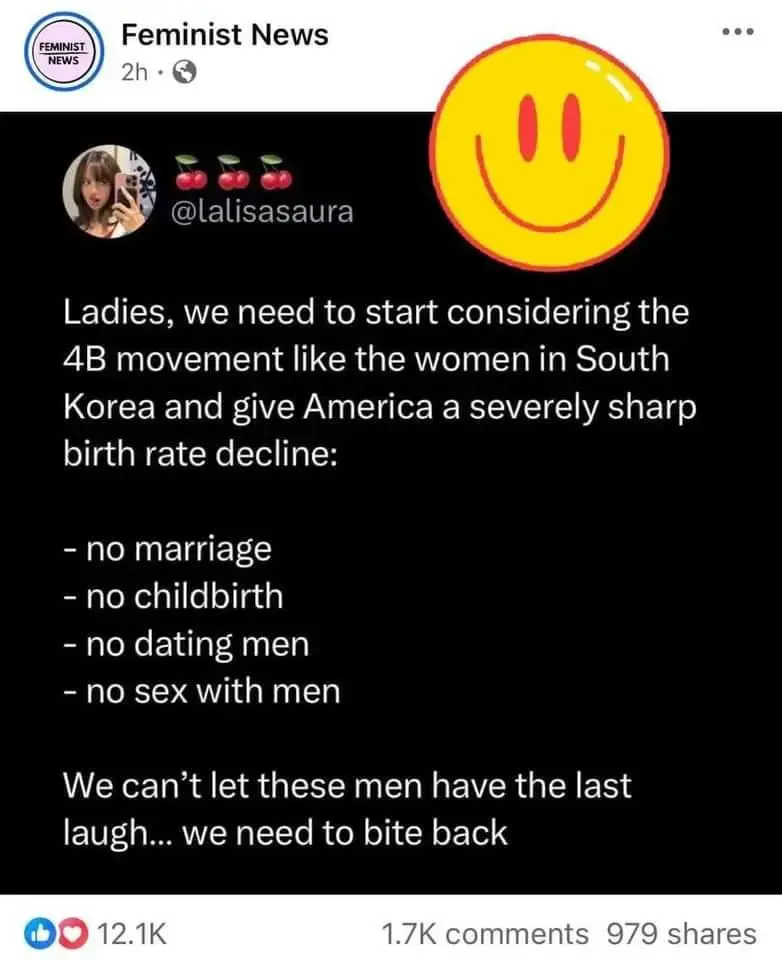this post was submitted on 07 Nov 2024
229 points (100.0% liked)
Politics
10178 readers
90 users here now
In-depth political discussion from around the world; if it's a political happening, you can post it here.
Guidelines for submissions:
- Where possible, post the original source of information.
- If there is a paywall, you can use alternative sources or provide an archive.today, 12ft.io, etc. link in the body.
- Do not editorialize titles. Preserve the original title when possible; edits for clarity are fine.
- Do not post ragebait or shock stories. These will be removed.
- Do not post tabloid or blogspam stories. These will be removed.
- Social media should be a source of last resort.
These guidelines will be enforced on a know-it-when-I-see-it basis.
Subcommunities on Beehaw:
This community's icon was made by Aaron Schneider, under the CC-BY-NC-SA 4.0 license.
founded 2 years ago
MODERATORS
you are viewing a single comment's thread
view the rest of the comments
view the rest of the comments

Total votes cast: 143,000,000
Percentage of voters who are women: 54%
Number of female voters: 143,000,000 × 0.54 = 77,220,000
Percentage of women who voted for Harris: 54%
Estimated number of women who voted for Harris: 77,220,000 × 0.54 ≈ 41,698,800
This is a rough estimate. More complete data will become available later.
I think that's enough people to have an impact
We assume that 41.7 million women strictly adhere to the B4 movement.
This group represents a significant share of women of childbearing age (usually defined as 15-44 years in demographic studies).
We estimate the average U.S. woman has around 1.7 children over her lifetime, aligning with current U.S. fertility rates.
41.7 million women choosing not to have children would mean approximately 1.7 fewer children per woman, over their lifetimes.
This would potentially prevent around 70.9 million births (41.7 million x 1.7) in the long term, assuming these women otherwise would have had children.
Spread over an average reproductive lifetime (roughly 30 years), this impact would reduce the birth rate by about 2.36 million births annually (70.9 million divided by 30 years).
Annual U.S. births could drop from 3.6 million to approximately 1.24 million, which is a ~65% decrease in the birth rate.
You cannot make that assumption. That was the point of my post some 5-6 posts up.
Further just because they voted for Kamala is not a marker or evidence that they would even be on board with this type of response/campaign. So your number is flawed from the get go.
And the premise is self defeating. If you're refusing to have kids and teach them your beliefs, all you'll have are kids that belong to the other party. You will effectively just breed your ideals out of existence. This is one of the primary reasons that most religions are still around, they tend to (statistically) have van loads of children.
This also ignores the fact that those who would be willing to participate in such a campaign were likely to never have or have few children. Where-as those who disagree with this type of stance are going to be the religious types that statistically have more children anyway.
So let's take your example and apply more relevant controls on it... You'd at best get maybe 30% participation. And that 30% would be most likely to only represent 0-2 children over their lifetime. I bet after accounting for that you're closer to maybe a decrease of 10-20% birthrate... and you'd simply breed your ideal out of society in a matter of a generation or two.
Maybe.